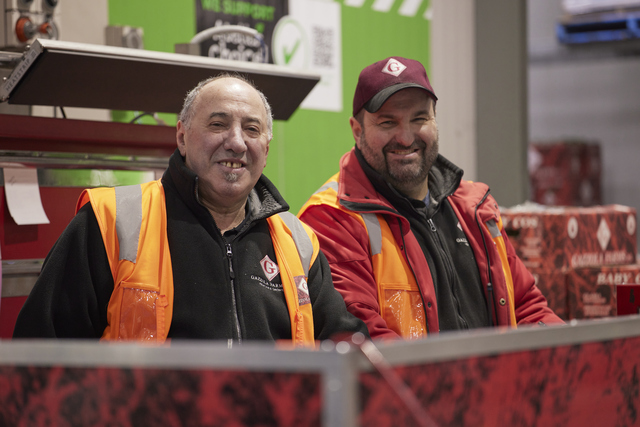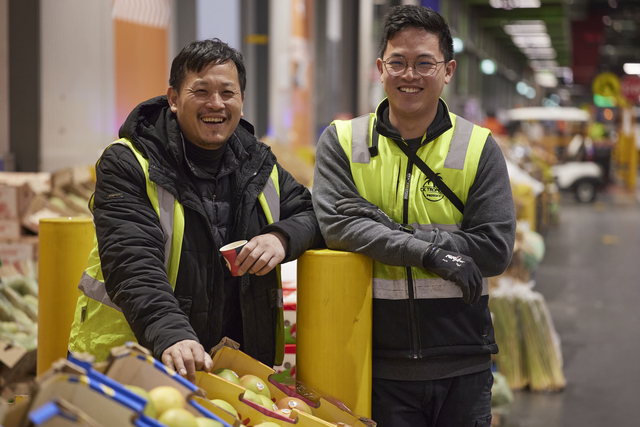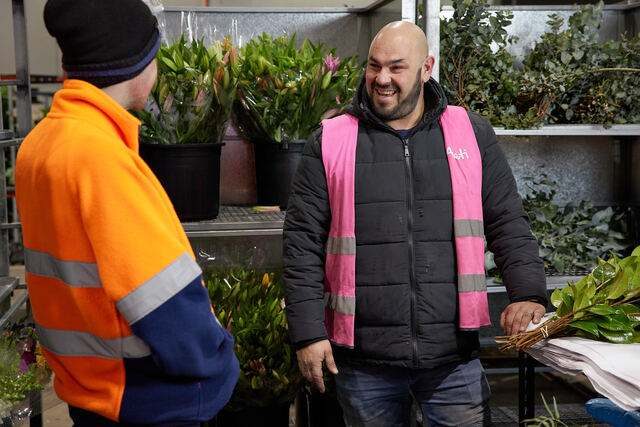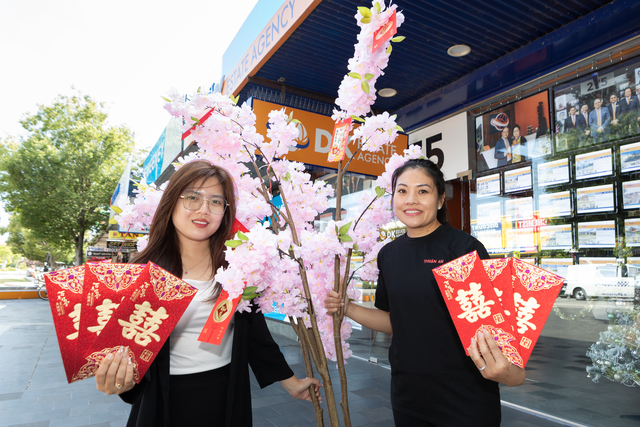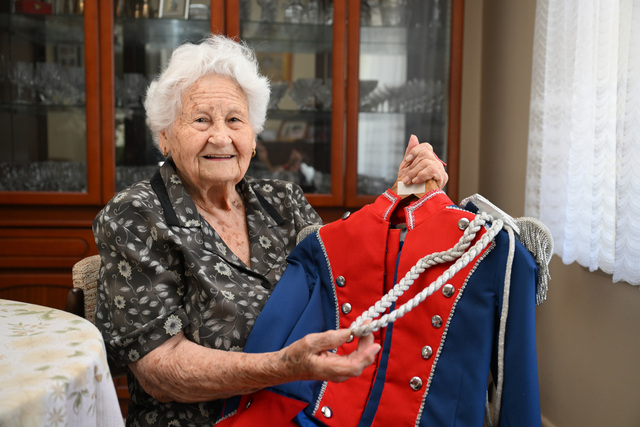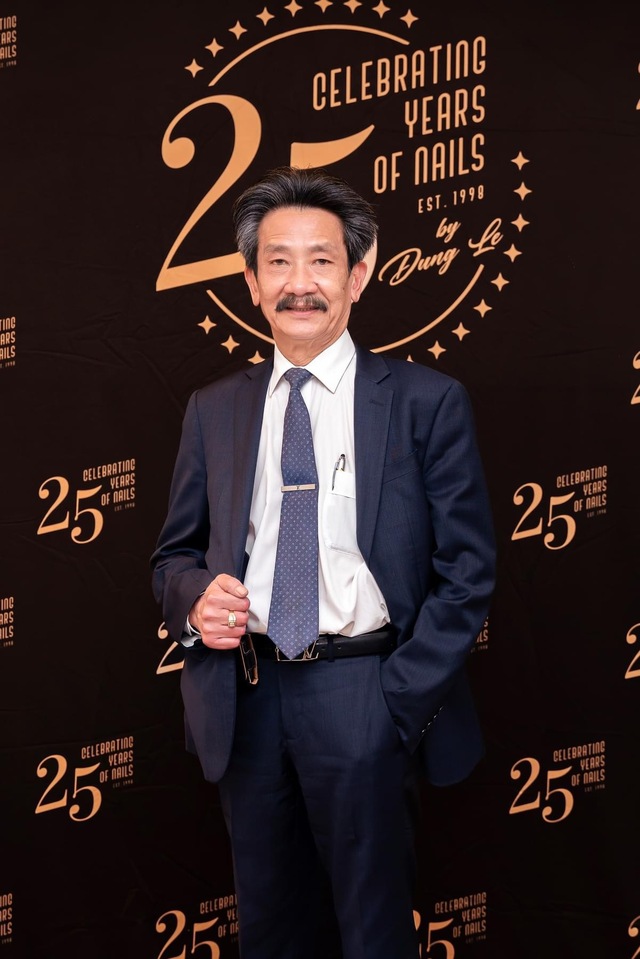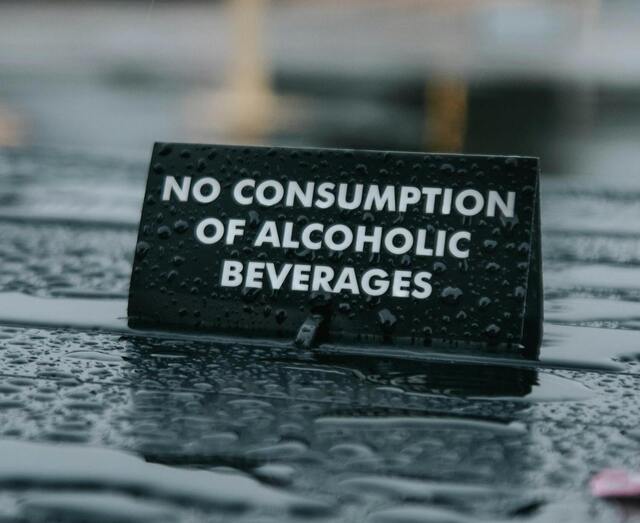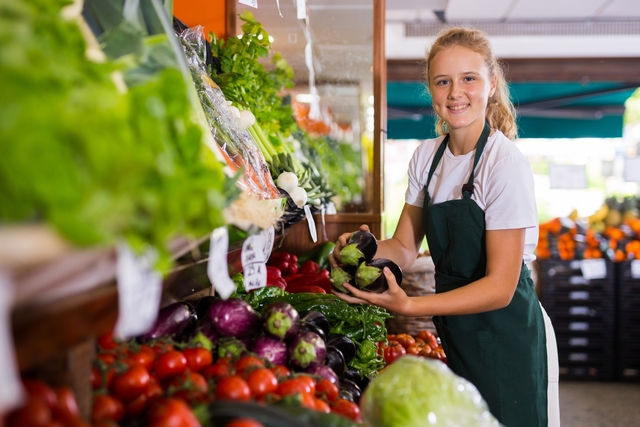Ever wondered where independent grocery stores source the fruit and vegetables that go into your favourite Easter dishes, or where your local florists buy the bouquets of cut flowers for your Easter table decorations? Anne Parisianne went to the Melbourne Market to find out.
Walk around Melbourne Market in Epping at 5.30am, and chances are you will see buyers busy moving goods from sellers’ establishments into their trucks using small forklifts.
Melbourne Market is Victoria’s wholesale vegetable, fruit and cut flower trading centre.
The market, built on a 67-hectare site, is one of six central fresh produce markets in Australia.
From midnight until dawn, around 2,750 businesses use the market as a base to sell fresh produce for distribution to independent greengrocers, supermarkets, restaurants and food processors across Victoria and Australia.
John De Muri, one of the three brothers who owns Gazzola Farms, has been selling vegetables from his farm in the Melbourne Market for many years. Lettuce, celery, broccoli and pak choy are a few varieties of leafy vegetables available direct from his farm.
Gazzola Farms plans ahead of time as some crops can take up to six months to grow. And by getting the growing cycle timing right, Mr De Muri and the farm can produce a high-quality product.
“What we do is an art,” he said while standing inside a cubicle in front of his market stand.
Like everyone who works at the market, Mr De Muri wears a green vest to ensure safety.
Gazzola Farms also sells vegetables from other farmers.
“In the wintertime, we get all our leafy vegetables from Queensland, cauliflower from Werribee, carrots from Tasmania and Mildura, parsnips from South Australia and Brussels sprouts from South Australia and Western Australia.”
Certain vegetables in the market come from other Australian regions due to seasonal weather or the specific growing conditions required by the vegetables.
When Star Weekly visited, Mr De Muri had been at the market since midnight.
He and his brothers typically work 50 to 60 hours per week, which shows their dedication to the business they love.
Mr De Muri, who had been working in the industry for around 50 years, reminisced about how the farming and wholesaling industries had been the best places for him to learn.
“When you come to a market and people give you money, [then] you know how to count. If you go home and you haven’t counted properly, you make a mistake. So you make sure you do it right the first time.”
Inside the Melbourne Market, not all traders grow their own fruit and vegetables.
CK Tropical Produce acts as an agent for Asian types of fresh produce.
CK Tropical Produce owner Henry Huynh explained that “our mangoes… dragon fruits are from growers in Queensland”.
And some of the trader’s goods, such as apples, pears and coconuts, come from overseas.
CK Tropical Produce sells fresh produce to restaurants and retail shops in Victoria.
Before joining the family business eight months ago, Mr Huynh was a civil engineer designing bridges and tunnels for ten years.
Mr Huynh’s passion for the business started when he helped his parents-in-law last year for a few days while they were away.
“I really like the sales aspect… getting to know [people] and building relationships with all the customers,” he said.
“It’s been quite enjoyable coming to a completely new industry—one that I’ve never been exposed to before.”
Walk past the fruit and vegetables section, and you enter the Flower Centre.
According to the Melbourne Market’s website, the flower market serves as a crucial trading hub for fresh flower producers, with Victoria contributing approximately 40 per cent to Australia’s national demand for cut flowers.
Grown Farm Fresh owner George Ambatzidis sat on a chair inside his flower-stand area.
His friendly smile added brightness to the colorful cut Australian native flowers displayed around his market stand.
Mr Ambatzidis said flower demand increases slightly in the lead up to Easter.
“We will be doing a lot of chrysanthemum posies [for Easter],” he said.
“[These flowers] will be filling up churches. We supply these flowers to shops as well.“
Mr Ambatzidis said there was strong demand year round for native flowers, such as protea, waratah, banksia, and silver spurflower.
When asked about people’s preference for native flowers, Mr Ambatzidis said, “It’s probably because we want to go back to our basics, to our ground roots here”.
While the sellers wait for customers, some buyers are ready to leave.
At around 6am, one of Eden Garden’s owners David Hanno, has finished loading fruit, vegetables, and flowers into a truck.
Eden Garden Fresh Market is an independent supermarket in Mernda that offers various products including fresh produce, flowers, frozen foods and deli meats.
And for its fresh produce and flowers, Mr Hanno and his business partner, Antonio Nissan, purchase from the Melbourne Market’s traders.
“Sales toward Easter generally usually go a little bit up,“ Mr Hanno said while enjoying an early morning cup of coffee. “People buy more citrus fruit like mandarin now, because the weather has changed to slightly cooler toward Easter.
“In Australia, we’re so lucky because we get a good amount of produce that can cover everybody’s [needs].”
Mr Hanno says the products he stocks in his shop are of a quality he would personally choose to consume.
“We do our best to give people the quality and the service, and [at] a lower price, too.
“We work very hard to make that happen.“
His vision for the business is for more than just profit. Mr Hanno cares about the satisfaction of Eden Garden’s customers.
“When people come and appreciate you for what you’ve done… it’s more of a reward.
“This [business] is not just about money, it’s about passion and the love you put into it.“
As the sun comes out, the frenetic activity inside the market subsides.
Buyers’ trucks leave the market, taking vegetables, fruit, and flowers to grocers and restaurants across Victoria.
The ingredients for your next Easter meal may have come from the Melbourne Market in Epping.

